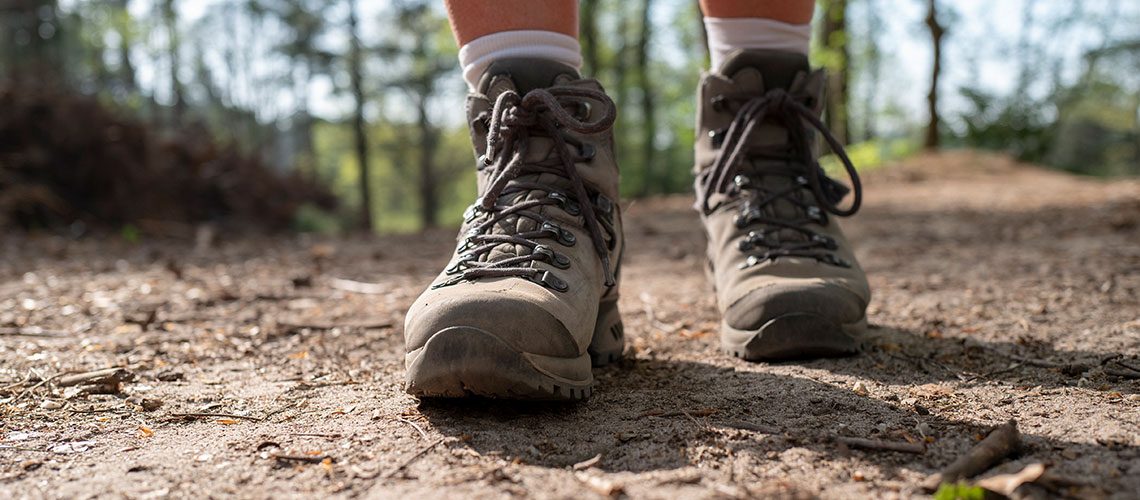In today’s fast-paced world, where stress and anxiety are prevalent, finding ways to improve mental health is crucial. One effective and accessible method that has gained popularity is walking. Walking not only benefits physical health but also profoundly impacts mental well-being.
This comprehensive guide delves into how walking can enhance mental health. It is underscored by expert recommendations and a personal journey and provides practical tips on incorporating walking into your daily routine.
The Power of Walking for Mental Health
Walking is a simple yet powerful form of exercise that can have a transformative effect on mental health. It is much more than just a way to get from point A to point B; Regular walking can help reduce symptoms of anxiety and depression, improve mood, boost self-esteem, and enhance overall cognitive function. The rhythmic motion of walking, combined with exposure to nature and fresh air, has a calming and grounding effect on the mind.
Expert Recommendations on Physical Activity
Experts suggest that engaging in physical activity like walking for 30-45 minutes, 3-5 times per week, can significantly improve mental health:
- Endorphin Release: Like other forms of exercise, walking stimulates the production of endorphins. These “feel-good” hormones help elevate mood and reduce feelings of stress and anxiety, making walking an excellent mood booster.
- Circulation and Brain Health: Regular walks increase blood flow, enriching the brain with necessary oxygen and nutrients. This improves overall brain function and enhances mental clarity and cognitive abilities.
- Quality Sleep: Those who regularly walk often notice improvements in sleep quality. Since sleep is crucial for emotional and psychological resilience, better sleep can lead to better mental health.
- Natural Settings: Walking outdoors, particularly in green spaces, can amplify these mental health benefits by reducing feelings of anger, fear, and stress. The natural environment offers a calming effect that can’t be replicated indoors.
- Distraction and Perspective: Walking offers a healthy way to break from daily stressors, providing space to breathe and gain new perspectives on various issues.
- Self-Esteem and Resilience: Regular physical activity, including walking, boosts self-esteem and resilience, empowering individuals to handle life’s challenges more effectively.
- Aerobic Exercise: Low- to moderate-intensity exercises, such as brisk walking or swimming for about 30-35 minutes, 3-5 days a week for at least 10-12 weeks, are recommended to boost positive moods like enthusiasm and alertness.
- Intensity Matters: High-intensity exercise offers more substantial mental health benefits than low-intensity activity. Incorporate strength training and cardiovascular exercises 3-5 times a week for optimal benefits.
- Optimal Exercise Dose: The ideal amount of exercise for significant mental health improvements appears to be about 30-45 minutes per session, 3-5 times per week. Engaging in physical activity more than five times per week does not necessarily provide additional mental health benefits.
- General Guidelines: While any amount of exercise is better than none, the recommended target for adults to achieve overall health benefits is 2.5-5 hours of moderate or 1.25-2.5 hours of vigorous activity per week.
The key is consistency and enjoyment. Maintaining enjoyable physical activities regularly is crucial for long-term mental well-being.
A Personal Journey: Enhancing Mental Health Through Walking
During the 2020 lockdown, our colleague Peter Lowe embraced a routine of walking at least 10,000 steps daily. This allowed him to enjoy the outdoors and was a critical tool for maintaining his mental health. His journey began with a challenge to walk a million steps in three months, a goal he achieved and exceeded by walking over four million steps in a year. Peter’s story exemplifies the positive impact of setting and reaching personal health goals.
Setting and Achieving Walking Goals
Establishing and reaching walking goals can effectively ensure you reap consistent benefits from this activity:
- Track Progress: Utilize fitness apps or smartwatches to monitor your daily steps or mileage. This tracking can motivate you to adhere to your routine and gradually increase your goals.
- Engage in Challenges: Join walking challenges to add a competitive and fun element to your routine, which can help sustain motivation and improve mental health outcomes.
Incorporating Walking Into Your Daily Routine
Integrating walking into your daily life is simpler than it might seem. Here are some practical ways to incorporate more walking into your daily activities:
- Commute by Foot: When possible, walk to work or other destinations. This incorporates physical activity into your day and helps reduce your environmental impact.
- Schedule Walks: Like any important appointment, schedule your walks to ensure they are a consistent part of your day, enhancing physical and mental health.
Key Benefits and Research Insights
- Reducing Depression Risk: Studies have shown that just 75 minutes of brisk walking per week can lower the risk of developing depression among adults by 18%. If the duration is extended to 2.5 hours per week, the risk reduction increases to 25%.
- Immediate Mental Benefits: Even short, 10-minute brisk walking sessions can significantly boost mental alertness and elevate mood. This makes walking an excellent tool for quick stress relief and mental clarity.
- Endorphin Release: Regular walking stimulates the production of endorphins, the body’s natural painkillers and mood elevators. These biochemical effects help reduce feelings of stress and lead to feelings of euphoria.
- Enhanced Cognitive Function: Walking increases blood circulation to the brain, which is crucial for sparking neurogenesis (the growth of new neurons) and strengthening the hippocampus, an area of the brain associated with memory and learning.
- Connection with Nature: Walking outdoors, particularly in green environments, not only boosts physical health but also enhances mental health by reducing anxiety symptoms and increasing feelings of happiness and well-being.
Conclusion
Walking is a powerful, accessible tool for enhancing mental health. By integrating regular walking into your routine and following expert recommendations for physical activity, you can enjoy improved mood, enhanced mental clarity, and greater emotional resilience.
Remember, every step counts towards building a healthier, happier life. Start small, set realistic goals, and gradually increase the duration and intensity of your walks to harness the full benefits of this enjoyable form of exercise.
Useful Resources
- https://www.lesmills.com/uk/fit-planet/health/mental-health-research/
- https://www.ncbi.nlm.nih.gov/pmc/articles/PMC9517129/
- https://www.mentalhealth.org.uk/sites/default/files/2022-07/How-to-exercise.pdf
- https://www.betterhealth.vic.gov.au/health/healthyliving/exercise-and-mental-health
- https://www.helpguide.org/articles/healthy-living/the-mental-health-benefits-of-exercise.htm



